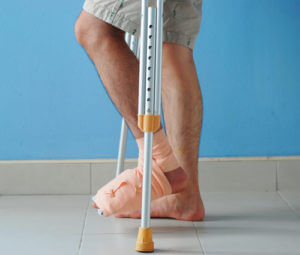 If you are injured at someone else’s house or on their property, it is likely that the property owner’s homeowners insurance will cover your claim. Almost every homeowner with a mortgage has homeowners insurance as coverage is often mandated by the lender. If a homeowner owns a property free and clear, however, it is possible that he or she may not have homeowners insurance. The only way to know whether a homeowner has insurance is by asking him or her. Personal injury claims against insured homeowners proceed like claims against insured automobile drivers. Once the claim is reported to the insurer, the company assigns an insurance adjuster to the case. The adjuster may ask you to give a recorded statement about what happened. If you do not have a lawyer, it is unwise to give a recorded statement.
If you are injured at someone else’s house or on their property, it is likely that the property owner’s homeowners insurance will cover your claim. Almost every homeowner with a mortgage has homeowners insurance as coverage is often mandated by the lender. If a homeowner owns a property free and clear, however, it is possible that he or she may not have homeowners insurance. The only way to know whether a homeowner has insurance is by asking him or her. Personal injury claims against insured homeowners proceed like claims against insured automobile drivers. Once the claim is reported to the insurer, the company assigns an insurance adjuster to the case. The adjuster may ask you to give a recorded statement about what happened. If you do not have a lawyer, it is unwise to give a recorded statement.
Homeowners insurance generally has two separate types of coverages, liability coverage and medical payments coverage (often called “med pay”). Medical payments coverage pays a limited amount of the injured person’s medical bills, whether or not the homeowner was negligent. Most homeowners have $5,000 or $10,000 of med pay coverage. Medical payments coverage applies to your medical bills and pays them on an ongoing basis. You simply submit them to the adjuster as they come in, up to the limits of the coverage. Your liability coverage will pay all of the injured person’s losses associated with the injury, which includes medical bills, lost income, pain and suffering, and other damages, up to the limits of your coverage. Liability coverage typically is a minimum of $100,000. If a lawsuit is filed against you by someone injured on your property, the insurance company will provide the defense for you. It is possible that you may be liable above the limits of your policy, although that would have to include a fairly serious injury, and it is also possible that your policy includes an umbrella provision that would protect you in such a situation. Up to $1 million dollars may be available in umbrella coverage under certain policies for just a few hundred dollars a year.
Some states, such as Delaware, have statutes which give homeowners immunity for tort claims made by guests or trespassers injured on a residential property, in the absence of will, wanton, or intentional misconduct. However, in most states a homeowner is liable for a slip and fall accident on his or her property if the homeowner was negligent and his or her negligence was the cause of your accident. Simply because someone fell on another’s property does not mean that the homeowner was negligent. The injured person had to have fallen because of some unsafe condition in the property. Some of the most common claims for injuries inside the home include staircase accidents, slipping on the floor, or tripping on a carpet or other hazard on the floor or yard. Homeowners can also be liable for injuries sustained by intoxicated guests or domestic workers who become injured. Some injuries do not require proving negligence. Some states do not require proof of negligence for dog bite injuries, and these are known as strict liability states. The homeowners would be liable automatically for this type of injury. Homeowners insurance will not likely cover intentional acts committed by you on your property.
